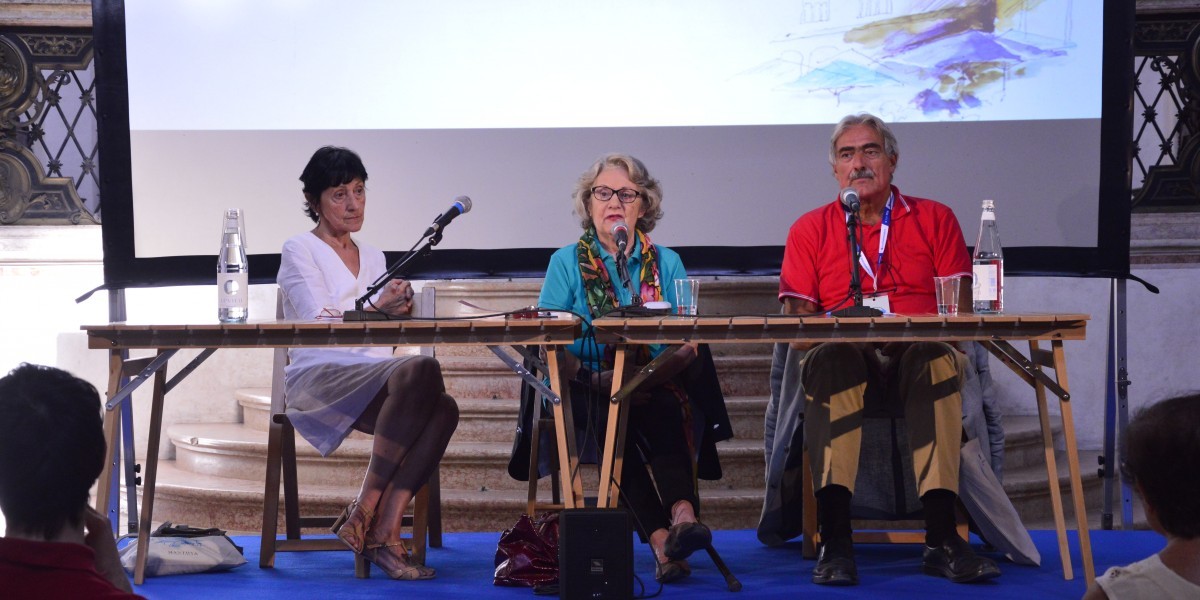
Antonia Arslan, Marcello Flores and Laura Mirachian
Some hundred years after Medz Yeghern, the 1915 Armenian Genocide, for the first time there is a growing understanding of the massacre in Turkey and, as is often the case, literature is one of the main vehicles behind this change. In 2013, the best selling book in Turkey was 1915: The Armenian Genocide by Hasan Cemal. Up until very recently, the word 'genocide' was subject to strict government censorship and Orhan Pamuk, winner of the Nobel Prize for Literature in 2006, was put on trial for having used the term in an interview.
In the Basilica Palatina at Santa Barbara, Antonia Arslan, Marcello Flores and Laura Mirchian talked about the genocide and how, years later, its history is quietly resurfacing. Could the actions of Isis in the Middle East not perhaps be classed as cultural genocide? Tensions in Syria, above all on the part of Russia and Iran, are long-standing and, in the case of Iran, they even date back to the time of the Roman Empire. When the legions arrived in Palmyra, they found themselves in an unexpected alliance with local tribes who were against further expansion from the Persian Empire, which sought to reach the Mediterranean coast.
The echo of political and cultural tensions often resonate in language, which, in the face of tragedy, must find new words to properly describe new crimes. The word genocide was not applied to the Armenian context until 1944. Accepting it meant acknowledging the size of the massacre, perhaps in the hope that its memory could serve to avoid it being repeated.
But words are not just a battlefield, an ideological and political struggle. They are capable of storing things that can recall times past. There are many who are bound to Syria, who are now caught up in the nostalgia of the country that they once knew. Like the sound of wood beads, the title of Antonia Arslan's book, referring to the rustling of long strands of beads found at the entrance to bars, many of which have inevitable closed. Like the first pages of Lettere da Damasco by Laura Mirachian, as read by Arslan at the end of the event.



